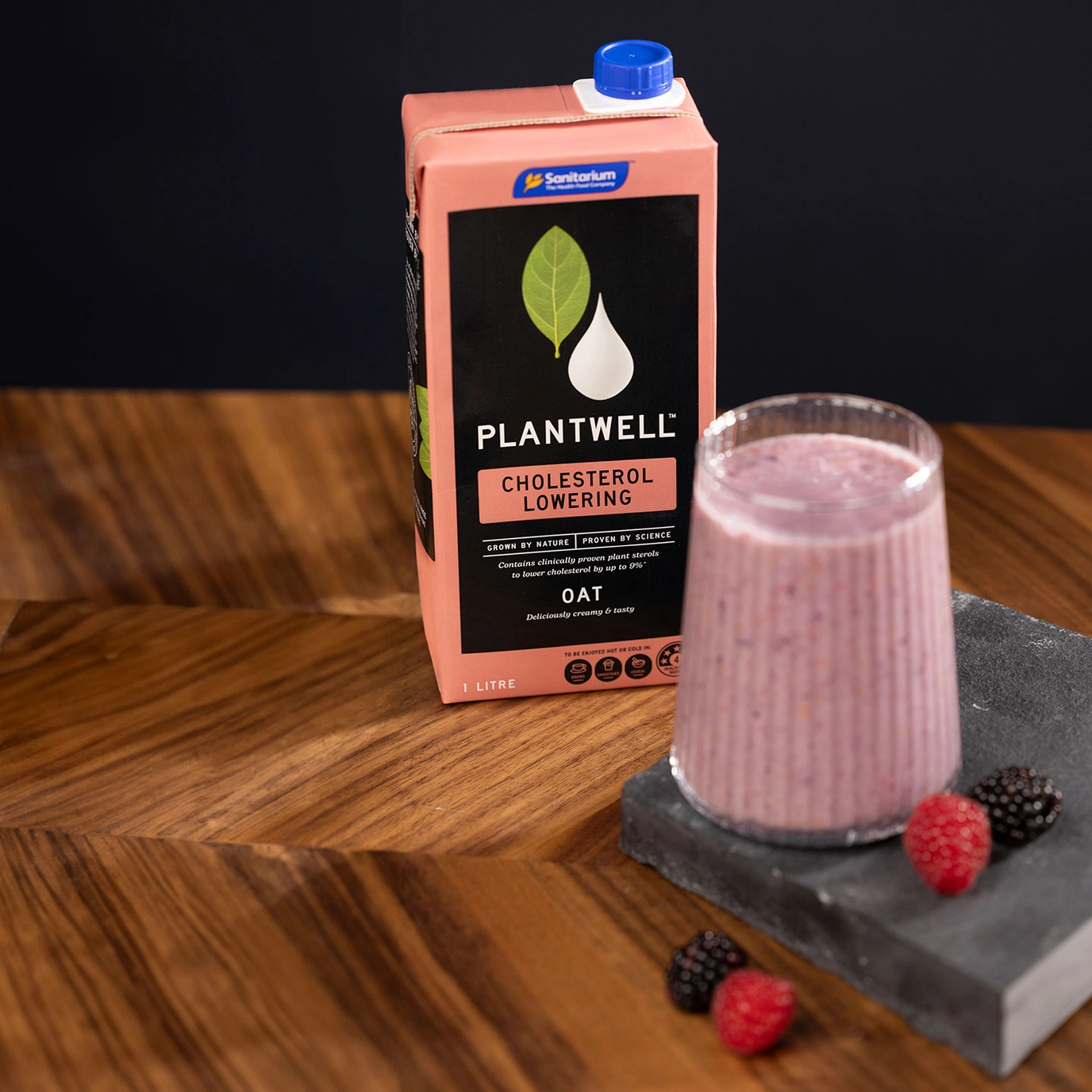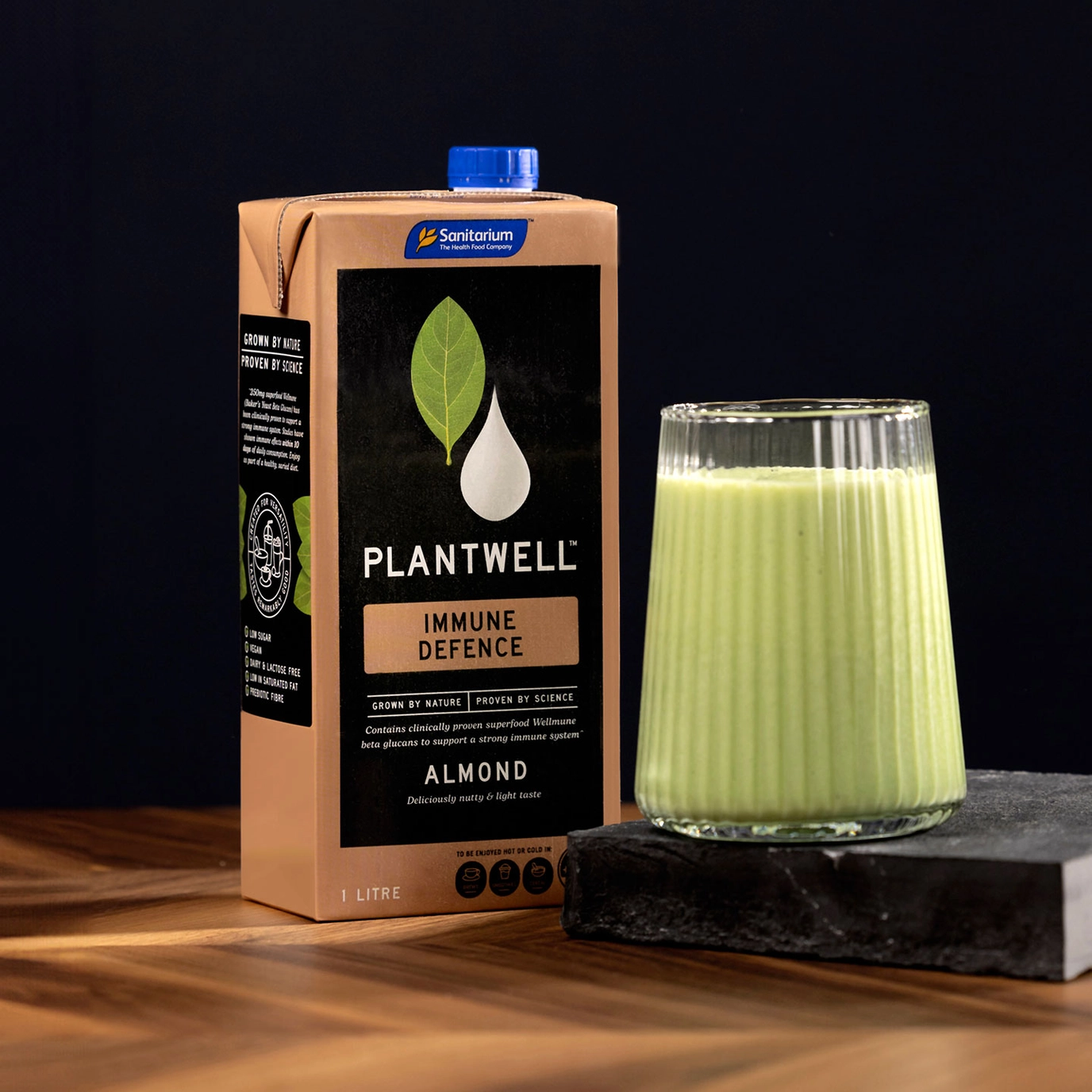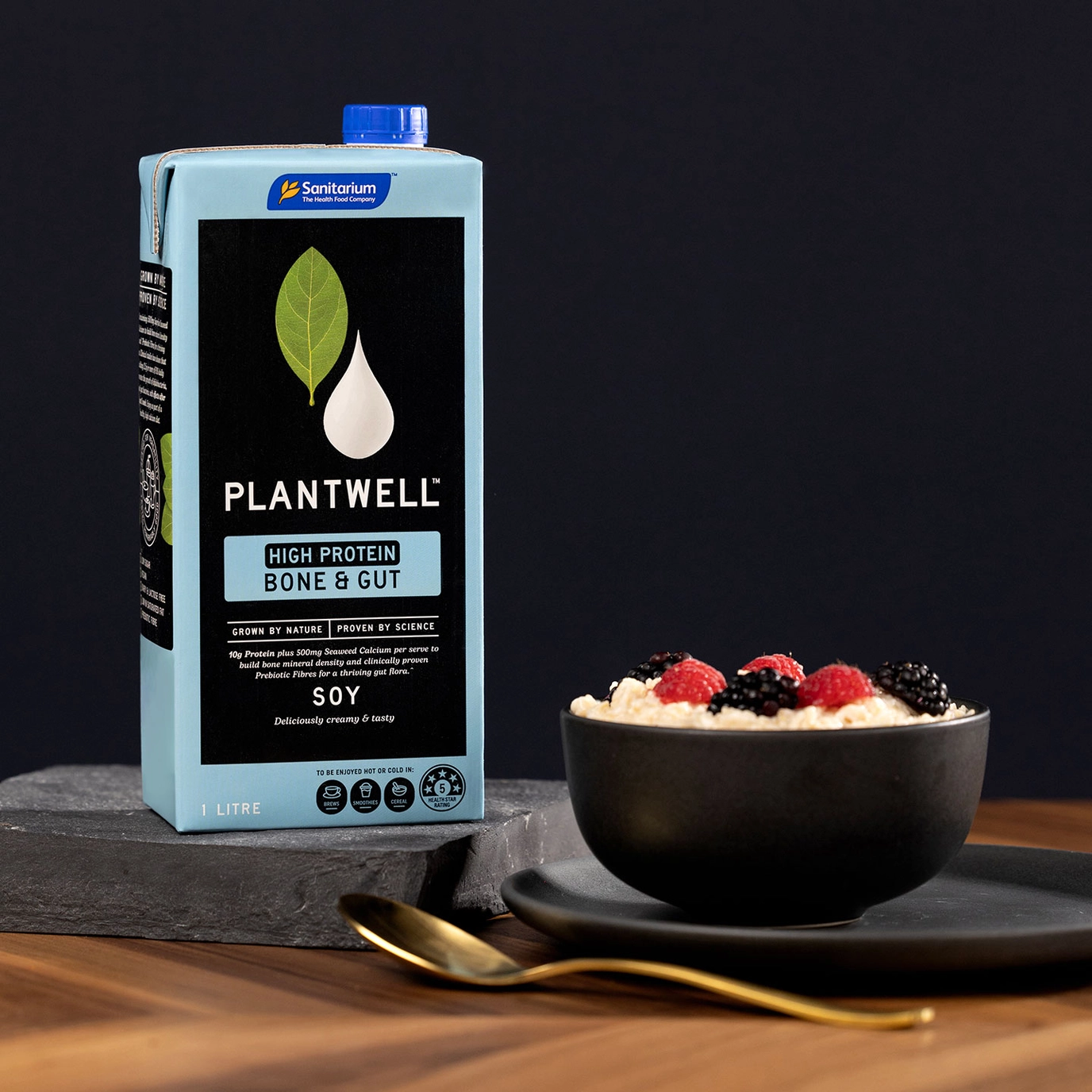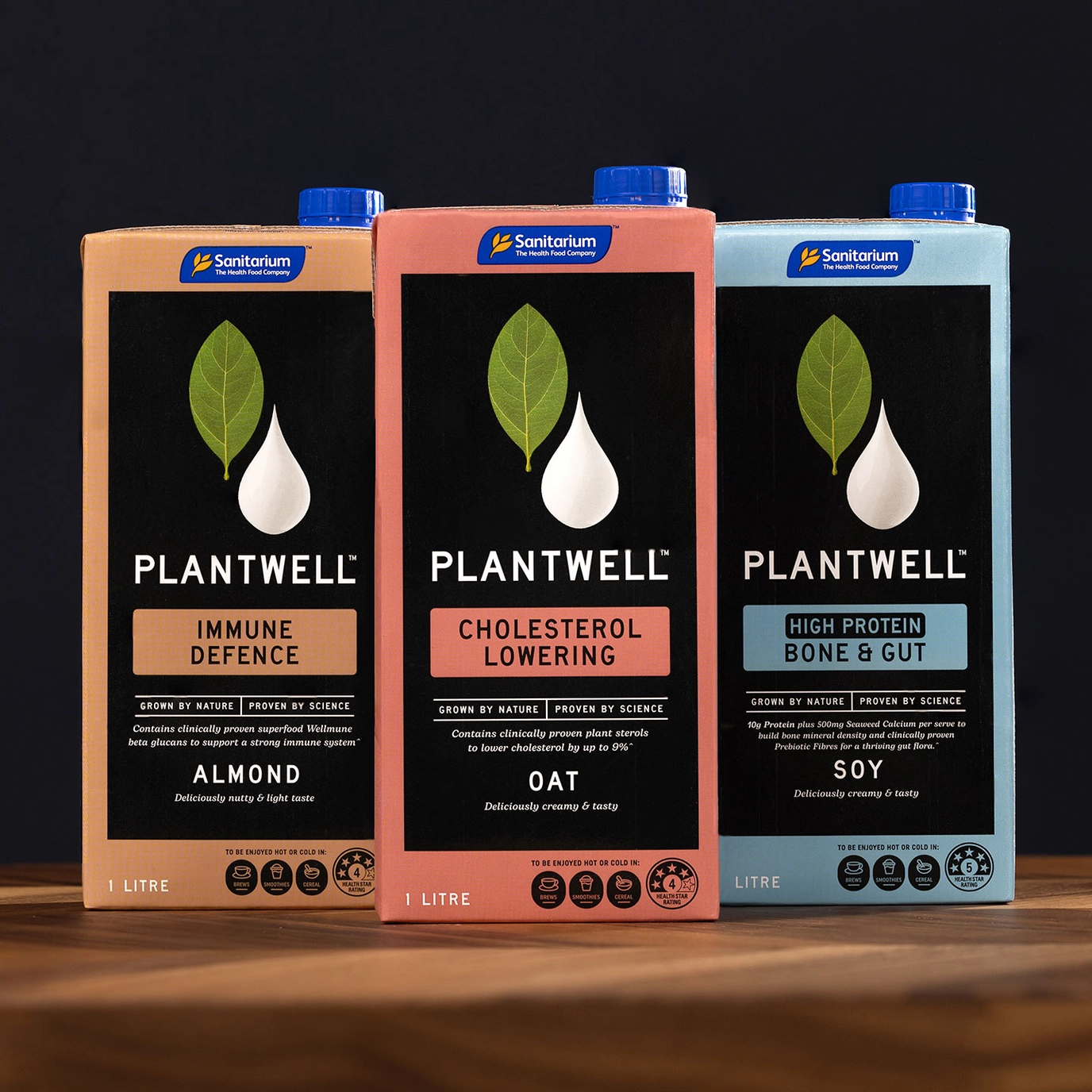GROWN BY NATURE. PROVEN BY SCIENCE

Plant Sterols
What are Plant Sterols?
Plant sterols, or phytosterols, are natural compounds found naturally in low levels in plant foods including fruits, vegetables, nuts and cereals. Most people obtain between 150 and 360 milligrams of plant sterols daily, depending on the diet.
Studies have demonstrated their ability to lower low-density lipoprotein (LDL) cholesterol levels when consumed in sufficient amounts of 2 to 3 grams a day.
About 6.5 Million Australian adults have elevated cholesterol1,2 and 33% of Australian adults need to manage their LDL cholesterol1.


How do Plant Sterols work?
Dietary interventions are the initial step in all international guidelines for the management of high cholesterol, and plant sterols can play a key role in this. Think of plant sterols as nature’s cholesterol regulators. Their molecular structure effectively enables them to reduce the absorption of cholesterol from the intestines into the blood stream - cholesterol arrives in the intestines from both bile and the diet - thereby reducing overall cholesterol levels in the blood stream. Consuming 2g plant sterols a day can lower LDL cholesterol by up to 9%.
Enjoy Plantwell Cholesterol Lowering as part of a healthy diet low in saturated fat.
Scientific Evidence
Plant sterols and their effects on cholesterol when added to a wide range of foods and drinks have been extensively studied. Hundreds of studies have been published over many years, interrogating how they work, quantities required for the desired effect, timeframes within which effects are observed, whether they work in different food formats, and their safety. Meta-analyses of Randomised Controlled Trials are regarded the gold standard of evidence. Linked below are two notable meta-analyses demonstrating the efficacy of plant sterols, specifically looking into timeframes and food formats.
- Ras RT, Geleijnse JM, Trautwein EA. LDL-cholesterol-lowering effect of plant sterols and stanols across different dose ranges: a meta-analysis of randomised controlled studies. Br J Nutr. 2014 Jul 28;112(2):214-9. doi: 10.1017/S0007114514000750. Epub 2014 Apr 29. PMID: 24780090; PMCID: PMC4071994. Link: LDL-cholesterol-lowering effect of plant sterols and stanols across different dose ranges: a meta-analysis of randomised controlled studies - PMC (nih.gov)
- Demonty I, Ras RT, van der Knaap HC, Duchateau GS, Meijer L, Zock PL, Geleijnse JM, Trautwein EA. Continuous dose-response relationship of the LDL-cholesterol-lowering effect of phytosterol intake. J Nutr. 2009 Feb;139(2):271-84. doi: 10.3945/jn.108.095125. Epub 2008 Dec 17. PMID: 19091798. Link: Continuous dose-response relationship of the LDL-cholesterol-lowering effect of phytosterol intake - PubMed (nih.gov)
Wellmune Beta Glucans
What are Wellmune Beta Glucans?
The beta-glucans are a diverse group of molecules that are typically found in the cell wall structure of plants such as oats, barley and seaweed, and many types of microorganisms including bacteria, yeast and fungi.
While all beta-glucans share structural characteristics, there are many subtle but important differences within the beta-glucan family that result in significant differences in function and health benefits.
The distinct molecular architecture of the baker’s yeast beta-glucan used in Plantwell Immune Defence and known as Wellmune baker’s yeast beta-glucan, give it the ability to interact with and strengthen the immune system.


How does Wellmune work?
Once ingested, Wellmune beta glucans pass through the gut and undergo enzymatic transformations, which effectively turn the molecules into messengers that bind to the body's predominant immune cells, the neutrophils.
Neutrophils play a pivotal role in identifying and neutralising foreign pathogens, including viruses. When primed with Wellmune fragments, neutrophils exhibit a heightened state of readiness, facilitating a more efficient immune response.
In simpler terms, Wellmune primes the immune system to combat potential threats, orchestrating a defence that not only shields against illness but potentially alters the course of symptom severity and duration.
Scientific Evidence
More than a dozen high quality human clinical studies have been published on the efficacy of Wellmune beta-glucan substantiating its strengthening impact on immune health. Based on the data, the recommended and effective dose is 250mg daily. Studies show that effects are seen within just 10 days. Below are two notable human trials on Wellmune:
- Carpenter KC, Breslin WL, Davidson T, Adams A, McFarlin BK. Baker's yeast β-glucan supplementation increases monocytes and cytokines post-exercise: implications for infection risk? Br J Nutr. 2013 Feb 14;109(3):478-86. doi: 10.1017/S0007114512001407. Epub 2012 May 10. PMID: 22575076. https://pubmed.ncbi.nlm.nih.gov/22575076/
- McFarlin et al. “Oral Supplementation with Baker's Yeast Beta Glucan is Associated with Altered Monocytes, T Cells and Cytokines Following a Bout of Strenuous Exercise.” (2017) Frontiers in Physiology 8:786. https://www.frontiersin.org/journals/physiology/articles/10.3389/fphys.2017.00786/full
Enjoy as part of a healthy and varied diet.
FRUCTO-OLIGOSACCHARIDES (FOS)
What is FOS?
Discover the hidden gems within Plantwell High Protein Bone & Gut, which include prebiotic fibers.
While all Plantwell milks contain prebiotic fibre, Plantwell High Protein Bone & Gut takes it up a notch with the addition of inulin-type prebiotic fibers originating from chicory root and known as fructo-oligosaccharides (FOS).


How does FOS work?
While fiber in general is renowned for its role in promoting gut health and maintaining regularity, it is prebiotic fibers that steal the spotlight for their ability to nourish the good bacteria in our digestive system.
The human gut harbours a densely populated microbial community with billions of bacteria residing there. The structure and activity of gut microbial communities is impacted by a number of factors such as genetics, age, weight, level of physical activity, stress, infections, medications, as well as our diets and the fibres we consume.
FOS in particular, has undergone rigorous trials demonstrating that it is a potent prebiotic, and is selectively utilised by bifidobacteria—a key player in our microbiome – fostering their growth.
Scientific Evidence
FOS boasts robust clinical evidence, gold standard human randomised placebo controlled trials. The evidence, such as the study by Bouhnik et al below, supports the beneficial impact of FOS on promoting the growth of bifidobacteria, good gut bacteria, when consumed at 2.5g once daily with effects after just 1 week.
Bouhnik Y, Raskine L, Simoneau G, Paineau D, Bornet F. The capacity of short-chain fructo-oligosaccharides to stimulate faecal Bifidobacterium: a dose-response relationship study in healthy humans. Nutr J 2006;5:8.
Link: https://www.ncbi.nlm.nih.gov/pmc/articles/PMC1448190/
To cultivate comprehensive gut health, we advocate for the incorporation of FOS into your daily routine, alongside a diverse array of fibre-rich foods such as wholegrains, legumes, vegetables, fruits, nuts, and seeds.
Mushroom Vitamin D
Unveiling the Sunlit Secret of Agaricus Bisporus
Just like skin, mushrooms have the remarkable ability to produce Vitamin D when exposed to sunlight. While most mushrooms are cultivated indoors and lack significant Vitamin D content, Plantwell takes a different approach.
The agaricus bisporus (white button) mushrooms used in Plantwell are a wonderful wholefood Vitamin D source. They have been grown in special conditions in which sunlight is replicated indoors to produce vitamin D rich mushrooms.


Harnessing the Power of Vitamin D
Did you know that 1 in 4 Australian adults are Vitamin D deficient?1,2
Due to being sun smart (for good reason) and/or spending most day indoors, many of us are not producing sufficient amounts of Vitamin D in our skin. Getting sufficient amounts from our diets can also be challenging as very few foods in nature contain vitamin D.
Sufficient Vitamin D is critical to good health, as Vitamin D has many functions in the body. It is necessary for normal absorption of calcium and phosphorus, contributes to normal cell division, bone structure, muscle function, and immune system function, amongst other things.
Vitamin D rich mushroom is found in all three of our Plantwell products, delivering half of your Recommended Dietary Intake per serving.
Seaweed Calcium
Unveiling the Nutritional Treasure of Lithothamnion Seaweed
At PLANTWELL we love discovering nutrient-rich ingredients from nature.
Our quest led us to the remarkable Lithothamnion species of seaweed, naturally calcified red algae sustainably sourced from the Western Fjords of Iceland in the North Atlantic. This seaweed is a natural mineral source that delivers a highly bioactive form of calcium as well as magnesium in our Plantwell High Protein and Plantwell Immune Defence plant milks.


THE ROLE OF LITHOTHAMNIUM SEAWEED IN PLANTWELL
Calcium is a cornerstone of bone health, playing a vital role in preventing osteoporosis and fractures. About 2 in 3 Australian adults have inadequate dietary calcium intake, which is a risk factor for bone health^
Moreover, calcium supports cellular growth and repair, facilitates normal digestive enzyme function, aids in energy metabolism, and is essential for optimal muscle and nerve function.
Plantwell High Protein Bone & Gut delivers a remarkable 500mg calcium per serve derived from seaweed, and Plantwell Immune Defence delivers 300mg calcium.
^ Australian Health Survey: Usual Nutrient Intakes, 2011-12 financial year | Australian Bureau of Statistics (abs.gov.au)
^ Australian Health Survey: Nutrition - Supplements, 2011-12 financial year | Australian Bureau of Statistics (abs.gov.au)